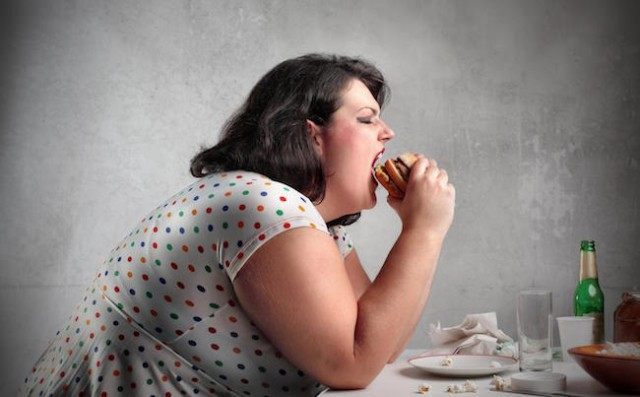Obesity is an incurable disease says the Guardian’s George Monbiot. No really, he goes on. It’s not only “more addictive than crack cocaine.” But also it’s quite like “cancer.”
Gosh, how I love George Monbiot! Is he not such a darling, wonderful thing?
I like his new byline photograph – still unsmiling, still austere, still wholesome and chunky-knit but now with the Wrinkles of Experience and the Deep Frown of Pained Wisdom.
I like his heroic abstinence from frivolity or mirth, redolent of one of those marvelously austere Scandinavian churches and lots of distinguished German philosophers, probably. He’s like a living version of that And When Did You Last See Your Father? painting, only without the belly laughs. And also remarkably like the Hon. Sir Jonathan Porritt, it occurs.
I like the fact that he went to Stowe – when Stoics, as a rule, are such jolly, thick-but-hugely-likeable beagling types.
I like the fact that he once wrote an article – God, I feel so sorry for George Monbiot – defending him when he got into trouble when he said something legally questionable about someone on Twitter. And I like even more the fact that I meant every word, which I think speaks volumes about what a generous-spirited person I am and about how I will always put high moral principle before petty feuds.
But most of all I like the fact that he keeps writing such fantastically wrongheaded nonsense which I am freely able to attack because George Monbiot remains a distinguished columnist, rated by many, well-remunerated, and accorded many a high platform at eco-conferences and suchlike across the whole of Gaia’s world – so no one can accuse me of “punching down.”
Anyway, George’s latest. His line is that because some new study has come out in a fancy sounding journal – Neuroscience and Biobehavioural Reviews – saying that people can get addicted to eating, and because once you become obese it’s much harder to lose weight (once you’re there, 98.3 per cent of men and 97.8 per cent of women never return, apparently) that therefore we should stop being horrid to fat people because they JUST CAN’T HELP IT.
I’m with him on the ‘being nice to disgusting looking people’ thing. The other day, I got talking to this bloke who looked like a filthy, smelly old tramp (as indeed he had been for the previous seven years) and he turned out to be an absolute joy. Also, I’m generally well disposed to fat people who appear as a rule to be jolly, who I know in my bones (call it male intuition) share my appreciation of food, and who – more to the point – could easily turn dangerous if you weren’t nice to them and just sit on you and squish you like a cockroach.
But when it comes to the as-bad-as-crack-or-cancer thing, I’m afraid George and I part company.
It’s not that I wish to diminish or ridicule in any way the difficulty of losing weight. I’m lucky enough not to have been born with the “big bone” gene.
My problems with his argument are twofold
a) if you want to lose weight, you can – just exercise more and eat less, as Katie Hopkins did on her My Fat Story documentary. (Sorry, but I absolutely refuse to believe that George Monbiot is not a massive fan of “The Hop”, as he probably calls her affectionately).
b) it expects us to share his terrifying assumption that if fatties can’t be persuaded to control their impulses then everyone must be made to suffer.
Here’s how he puts it:
Eventually the change will have to happen, with similar restrictions on advertising, sponsorship, display and accessibility to those imposed on the tobacco pedlars. One day, though not before many thousands have needlessly died, it will become illegal to advertise any food or drink that merits a red traffic-light warning. They will be sold only in plain packaging, with health warnings, on high shelves.
Then he adds, rather sweetly, as if even he thinks he might have gone a bit too far this time:
Does this seem draconian to you?
Unfortunately, it’s only a rhetorical question. George doesn’t think it’s ‘draconian’, it’s just plain commonsense, and he goes on with his characteristic lightness-of-touch and lack of dogmatism to explain:
If so, remember that obesity afflicts a quarter of the adult population, and is rising rapidly. It causes a range of hideous conditions, just one of which – diabetes – accounts for one sixth of NHS admissions and 10% of its budget. In what looking-glass world is this acceptable? If smoking demands fierce intervention, why not overeating?
This is the choice we face: to recognise that the only humane and effective means of addressing the obesity epidemic is to prevent more people from being hooked, by restricting the pushers – or to continue a programme of fat-shaming, bullying and compulsory treatment, whose only likely outcome is unhappiness.
Now ask yourself again: which of these options is draconian?
Which reminds me of the other thing I love about George Monbiot: his refreshing candour.
As I argue in Watermelons, the problem with so many environmentalists is that behind that cloak of bunny-hugging caringness they’re all basically a bunch of totalitarian kill-joys itching to transform the entire world into the Death Camp of Sustainability and Tolerance – with them, of course, as the jackbooted camp guards.
What’s so different, so special about George is that he really doesn’t bother to mask what he thinks with all that fluffy stuff. He gives it you straight. Whatever the situation, his answer boils down to: “More regulation. Less personal freedom. Now what’s the question?”
Truly for those of us on the opposite side of the argument, George is the gift that goes on giving.

COMMENTS
Please let us know if you're having issues with commenting.